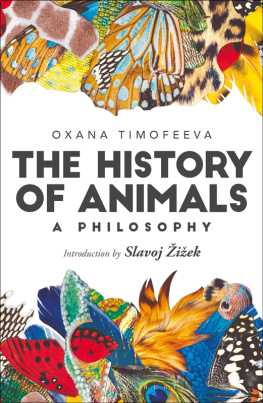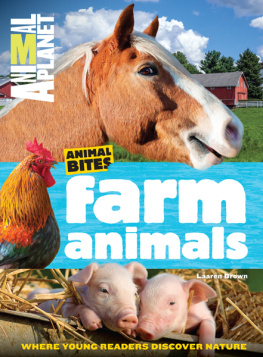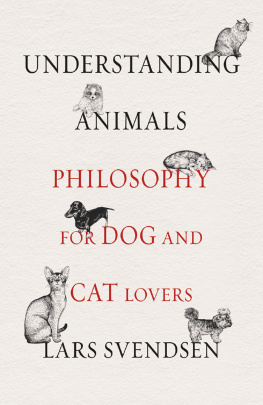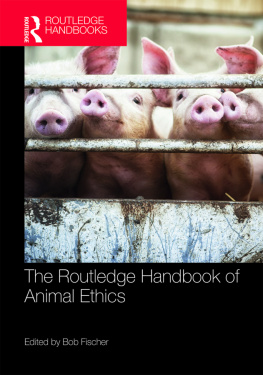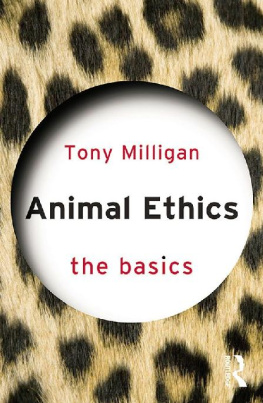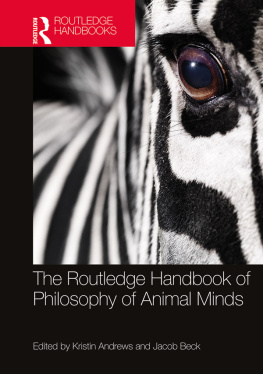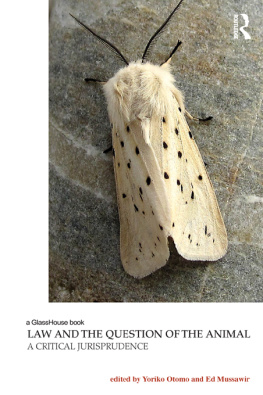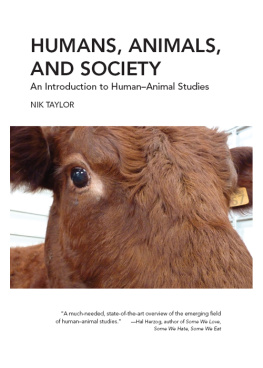The History
of Animals:
A Philosophy
ALSO AVAILABLE FROM BLOOMSBURY
The Animal Catalyst, edited by Patricia MacCormack
Eco-Aesthetics, Malcolm Miles
Ecosophical Aesthetics, edited by Colin Gardiner and Patricia MacCormack
Environmental Ethics, Marion Hourdequin
General Ecology, edited by Erich Horl with James Burton
Posthuman Glossary, edited by Rosi Braidotti and Maria Hlavajova
The History
of Animals:
A Philosophy
Oxana Timofeeva
Introduction by
Slavoj iek

Oh horse, you mustnt, oh horse, listen, horse:
dont think you are worse than they are!
We are all of us horses, to some extent! Horse?
Vladimir Mayakovsky
T his book was written, and the first, rather draft, version of it published in 2012 as a result of my work at the Jan van Eyck Academy in Maastricht, where I was a researcher in 20102011. These were two happiest years of my life, and I am thankful to all those who shared them with me. I would like to thank Mike Lewis, whose help in preparing this new edition was enormous, Slavoj iek for being the very first reader of the very first draft, Katja Diefenbach for pushing this project forward, Mladen Dolar for endlessly inspiring me, and Luisa Lorenza Corna for the wonderful cover. My special thanks are to my friends and colleagues from various fields, who read my work, commented on it, engaged with it or just shared with me their ideas, which are priceless to Aaron Schuster, Benjamin Noys, Lorenzo Chiesa, Jamila Mascat, Katja Kolek, Gregor Moder, Agon Hamza, Dominique Hurth, Dominiek Hoens, Nathaniel Boyd, Rasmus Ugilt, Sami Khatib, Steven Cuzner, Nina Power, Nikolay Poselyagin, Mikhail Iampolski and the entire Chto Delat group; I am grateful to Valery Podoroga, Irina Prohorova, Susanne Frank and Artemy Magun for their support, and to Bloomsbury Publishing for this collaboration; I would like to thank my mom Galina Timofeeva, who taught me everything, my husband Andrey Zmeul, my sister Elena Goncharova, and other family members and relatives for their love; and, finally, I thank all animals living and dead and those who are not included in this list.
I n December 2015 I visited Ramallah, West Bank, where I attended a conference on Walter Benjamin.These occupied territories are now surrounded by the wall. In order to get there, one needs to pass through a checkpoint. When I was leaving, I went through Kalandia checkpoint. Upon crossing the gates, I looked back: the land Ive just visited stayed there behind that ugly, grey wall; I saw some roofs and mosque minarets. The wall was about three meters long, with a barbwire on the top. Suddenly, a bird flew above the wall from what we call Israel to what we call Palestine. This book was completed three years earlier. When I was writing its concluding paragraph, the image of an animal crossing the borders and ignoring the gates was abstract; I did not have in mind any particular example of such animal. It could have been some other beast, crossing some other gate, but nothing less than history itself brought me to that place at that moment of time and made me see this audacious bird.
The History of Animals is the title taken from Aristotle. I borrowed it on purpose I wanted to provide this combination of two words with a new sense and to give credit for what must be comprehended as historical animality. My major premise is that, gainsaying the fact that animals have traditionally been consigned to non-historical nature, they do have a history. They have their own historical materiality, at the very least as a labour force. However, the logic of their history does not conform, in my view, to the optimism of the humanistic discourse of the progressive liberation and emancipation of animals that would finally secure their rights. Quite the contrary, it seems rather that from ancient totemism, inspired by the greatness of animal ancestors, through the sequence of exclusions and inclusions, to the present tragedy and farce that combine slaughterhouses, pet shops and global safaris, animals have had a bad career. Historically, they have failed.
In his wonderful essay Why Look at Animals? John Berger claims that in the last two centuries, animals have gradually disappeared (Berger 2009: 21). According to Berger, the disappearance of animals is the process simultaneous with the appearance of zoos: Public zoos came into existence at the beginning of the period which was to see the disappearance of animals from daily life (30). What is the period at stake? We are not talking about a mere abstract chronology; nothing but capitalist modernity is concerned: The historic loss, to which zoos are the monument, is now irredeemable for the culture of capitalism (37). More and more animals depart, one by one, leaving humanity with their own representations, with pets and toys. To these striking observations, Akira Mizuta Lippit adds that in fact they never entirely vanish, but rather continue to exist in a state of perpetual vanishing. Their existence become spectral, or, In supernatural terms, modernity finds animals lingering in the world undead (Lippit 2000: 1). While disappearing from our everyday life, the spectres of animals reappear in arts, theory and visual culture. In philosophy, too, they become not only ghosts but welcome guests: I am not original in my desire to follow their scent here. What I propose is to read the history of philosophy as the history of animals. This is my essays general ambition, if I might call it so.
What does philosophy have to say about the animal? It appears that the common attitude can be inscribed into a traditional pattern of ascending hierarchy. Already in Aristotle the idea may be found that animals are better than plants, that humans are better than animals, that men are better than women, free citizens better than slaves and so on. Not because whatever is inferior is bad, but because whoever is superior knows better what is good. Even those who clearly side with animality, and fight for animal rights and animal liberation with the ultimate aim of achieving an equal representation of the animal species in this still all-too-human world, cannot do away with the idea of the domination (now widely criticized) of mankind over non-human nature, as if the latter really needed our help, respect, support, recognition.
Animals in fact do not really care about humans care for them: we sacrifice them, transport them to the slaughterhouse, eat them, exploit them, train them, involve them in art processes and give them rights and documents but they remain indifferent. (This may not apply to pets and other domesticated animals, whose individual survival directly depends on humans, which makes them pretend a limited interest in response to mans desperate attempts to attract their attention.)
The moral attitude of humans towards animals can easily be brought back to its affective root, to the level of desire, which underlies any ethical concern or pragmatic preoccupation. Would it not be fair to say that the flip side of ascending hierarchy is a descending degree of jealousy and envy? Sometimes philosophers being perhaps the most arrogant of humans are really jealous of the animals taking pleasure in things, which the animals, so they think, nevertheless cannot fully experience as they are not fully conscious of their own enjoyment. As Bataille has it,
Man, despite appearances, must know that when he talks about human dignity in the presence of animals, he lies like a dog. For in the presence of illegal and essentially free beings (the only real outlaws) the stupid feeling of practical superiority gives way to a most uneasy envy. (Bataille 1986: 2223)
Next page
